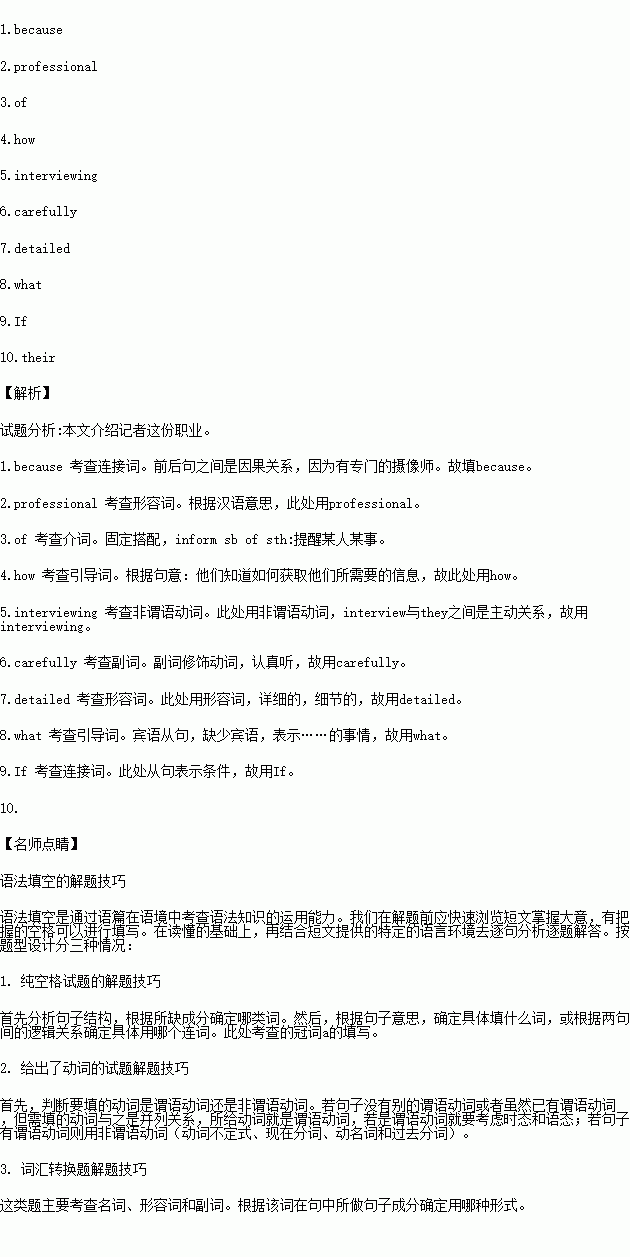题目内容
阅读下面材料,在空白处填入适当的内容(1个单词)或括号内单词的正确形式。
It is unnecessary for the journalists to take a camera __1.___ they have ___2._____( 专业的) photographers with them .The journalists should be curious and they must have a good “nose” for a story and use research to inform themselves __3.____the missing parts of the story. They know __4.___ to acquire the information they need ,and they will not be rude while ___5.__(采访).They will listen to the interviewee____6.__(careful) rather than talk too much themselves .They have to listen for ___7.__(detail) facts and prepare the next question depending on __8.__ the person says. ___9.____ the interviewee agrees, they can use a recorder to get the facts straight so as to support ___10._ stories .
练习册系列答案
相关题目

